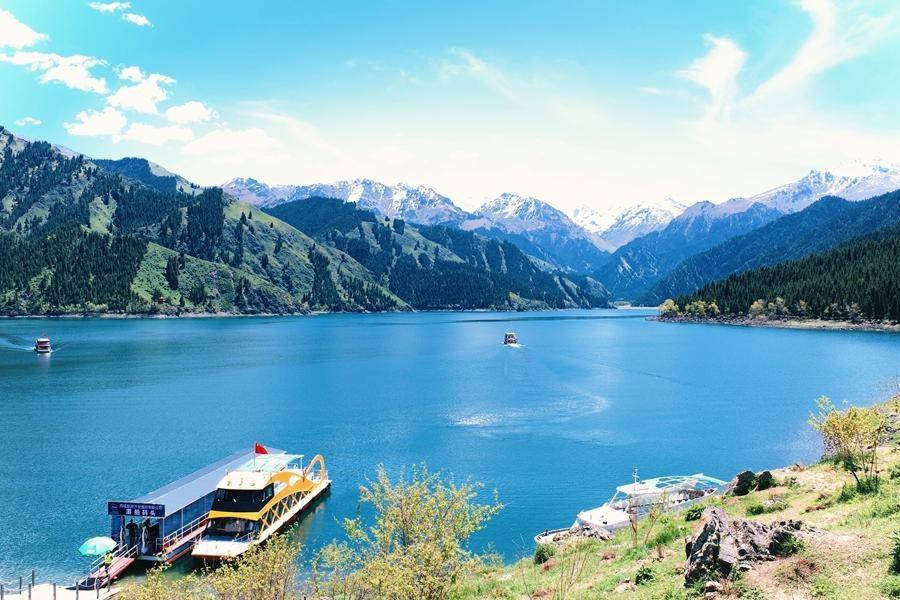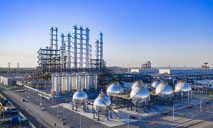Singaporean deputy PM calls on ASEAN, China to nurture new areas of complementarities
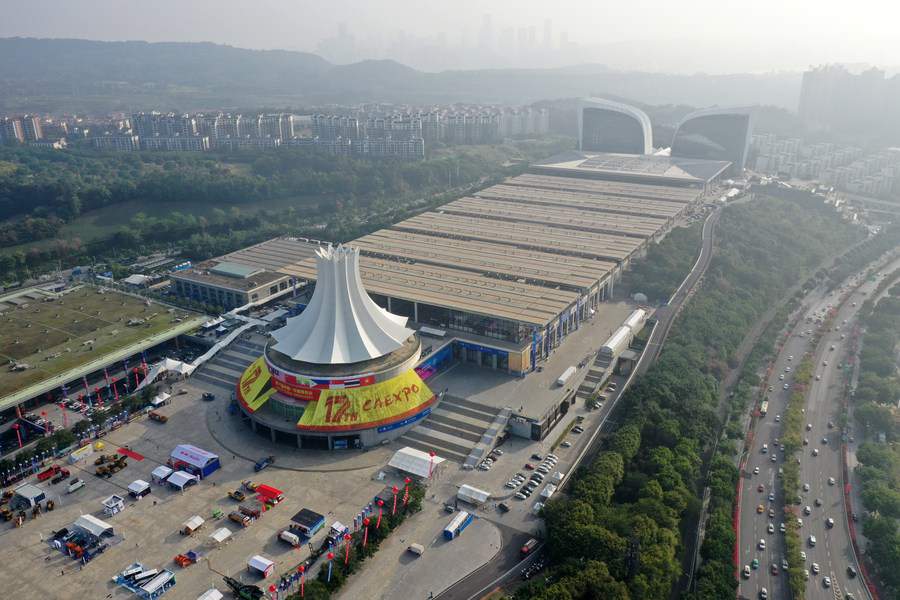
Aerial photo taken on Nov. 26, 2020 shows the view of Nanning International Convention and Exhibition Center, the venue of the 17th China-ASEAN Expo, and its neighboring buildings in Nanning, south China's Guangxi Zhuang Autonomous Region. (Xinhua/Lu Boan)
"The ASEAN-China Free Trade Agreement (FTA) is a cornerstone agreement that has benefited all members," Singapore's Deputy Prime Minister and Coordinating Minister for Economic Policies Heng Swee Keat said. "Let us work towards upgrading this agreement, to reduce non-tariff measures and address new priorities, especially for the digital economy."
SINGAPORE, July 13 (Xinhua) -- Singapore's Deputy Prime Minister and Coordinating Minister for Economic Policies Heng Swee Keat Monday called on ASEAN and China to fortify the foundations of existing partnerships, and nurture new areas of complementarities.
He said while delivering a keynote speech at the FutureChina Global Forum (FCGF) 2021 that the two sides should strengthen the rules-based multilateral framework for trade and investments.
"The ASEAN-China Free Trade Agreement (FTA) is a cornerstone agreement that has benefited all members," Heng said. "Let us work towards upgrading this agreement, to reduce non-tariff measures and address new priorities, especially for the digital economy."
He also called on the two sides to rebuild their aviation links and further liberalize the ASEAN-China Air Transport Agreement to boost the region's connectivity, as they prepare to resume cross-border travel.
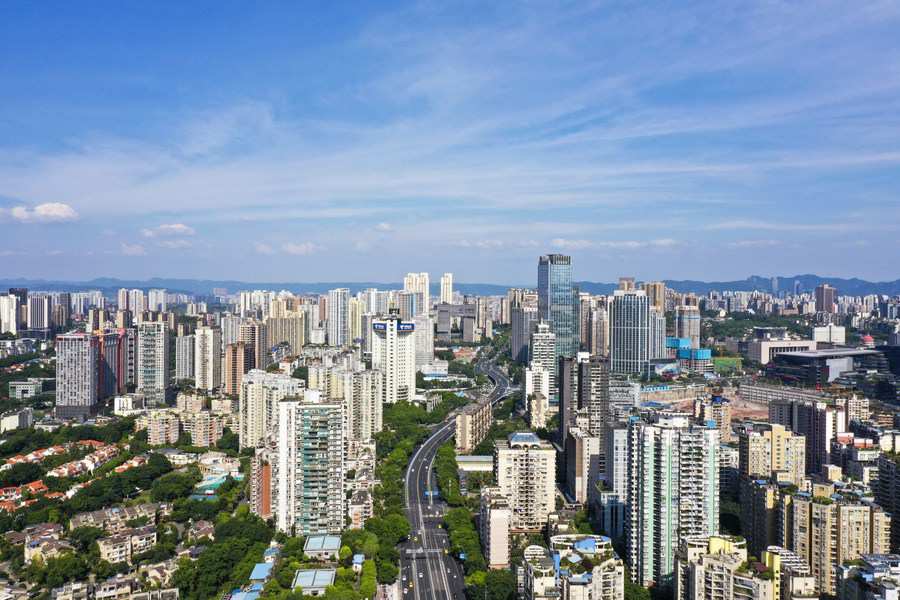
Photo taken on Aug. 6, 2020 shows a view of southwest China's Chongqing. A total of 230 cooperation projects have been inked under the framework of a China-Singapore connectivity initiative since it was launched in 2015. The China-Singapore (Chongqing) Demonstration Initiative on Strategic Connectivity aims to conduct pilot cooperation in various fields. (Xinhua/Liu Chan)
"Beyond ASEAN and China, we must maintain the momentum for global trade liberalization, and build confidence in multilateralism," he said. "RCEP (the Regional Comprehensive Economic Partnership), which was signed between ASEAN Member States, China, and four other major trading partners is an important next step."
Beyond FTAs, Heng said that ASEAN and China should explore new building blocks, including digital collaboration and sustainable development, to strengthen cooperation, to seek new sources of growth and address global challenges.
COVID-19 has accelerated the global shift to digital, and ASEAN and China must move swiftly to respond to this shift. Therefore, he called for piloting more city-to-city projects, and establishing Digital Economy Agreements at the country level.
More over, climate change is an existential challenge, and both ASEAN and China understand the urgency of the challenge, he said, noting that ASEAN and China can focus on catalyzing a green recovery, from investing in buildings that are more energy-efficient, to exploring cleaner energy sources such as solar and wind.
"China's Belt and Road Initiative or BRI is an important initiative, and a 'Green BRI' will be a major step in catalyzing green infrastructure," Heng said.
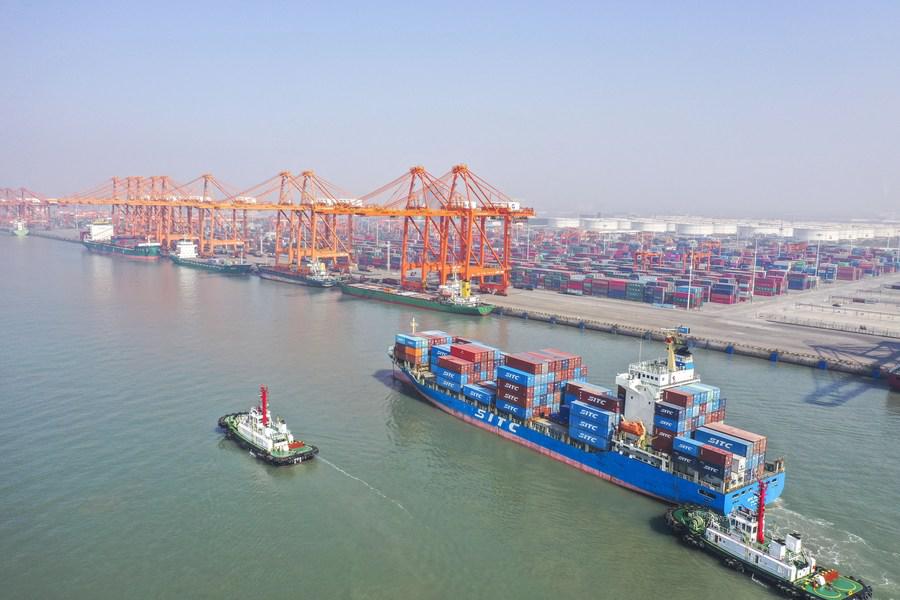
Aerial photo taken on Jan. 14, 2021 shows the container terminal of Qinzhou Port in south China's Guangxi Zhuang Autonomous Region. (Xinhua/Cao Yiming)
The FCGF 2021, organized by Business China, a non-profit organization that aims to strengthen ties between Singapore and China, commenced on Monday morning.
Held in a hybrid format for the first time, over 1,500 distinguished business leaders, public personalities, political leaders, and industry experts from Singapore, China, and the ASEAN region gathered at the forum, to discuss pertinent trends, opportunities, and lessons drawn from ASEAN and China, that will prepare the region for an increasingly volatile and complex "Never Normal" future.
The "Never Normal" is a term coined by business entrepreneur, advisor, and author Peter Hinssen as a "reality where change is constantly triggered by 'seismic shocks'," -- be it ecological, societal, or geopolitical in nature.
Photos
Related Stories
- China's growth positive for Asia, world, says Singapore Emeritus Senior Minister Goh Chok Tong
- People receive Sinovac COVID-19 vaccines in Singapore
- China, ASEAN pledge efforts to safeguard regional peace
- Bangladesh eyes FTA with China: commerce minister
- Interview: Expectations high for ASEAN, China to achieve post COVID-19 economic recovery: Malaysian analysts
Copyright © 2021 People's Daily Online. All Rights Reserved.







